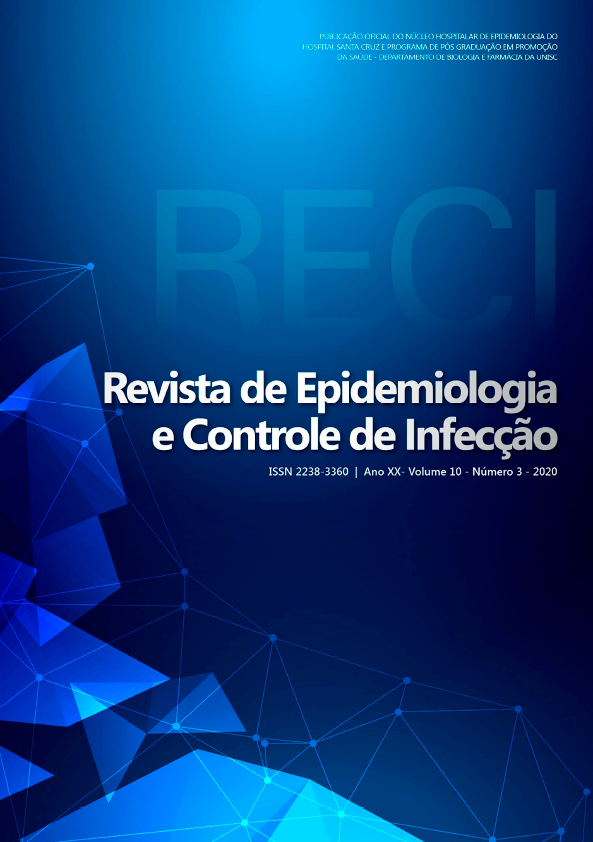Influenza A/H1N1 and COVID-19 in Brazil: impacts and epidemiological differences
DOI:
https://doi.org/10.17058/reci.v10i3.15413Keywords:
Brazil. Coronavirus Infections. Epidemiology. Influenza A Virus. Public Health.Abstract
Background and Objectives: In 2009, Brazil faced the influenza A/H1N1pdm09 pandemic that infected at least 50 thousand people. In 2020, it faces another pandemic caused by the SARS-Cov-2 virus (COVID-19). Because it is a new disease, there is much speculation about it and comparison with other scenarios, often based on fake news. This study compares the impacts and epidemiological differences of Influenza A/H1N1 and COVID-19 in Brazil. Methods: Quantitative, descriptive, epidemiological study, based on documents, whose data were collected on the information platforms of the Brazilian Ministry of Health and the World Health Organization, in addition to scientific articles. The data on Influenza A/H1N1 refer to 2009 and the data on COVID-19 to the period from March to April 30, 2020. Results: It appears that in Brazil, in just two months, the number of cases of COVID-19 (85380) has already exceeded the total cases of influenza A/H1N1pdm09 (50482) that occurred in the whole year of 2009 and caused a triple of deaths. Therefore, COVID-19 is more severe, given the proportions reached in lethality, due to the lack of vaccine and specific treatment of cases. Conclusion: The COVID-19 pandemic is more impactful for Brazil than the influenza A/H1N1pdm09 pandemic.Downloads
Downloads
Published
How to Cite
Issue
Section
License
Copyright (c) 2020 Milena Silva Costa, Estelita Lima Cândido, Jucier Gonçalves Junior, Maria Rosilene Cândido Moreira

This work is licensed under a Creative Commons Attribution 4.0 International License.
The author must state that the paper is original (has not been published previously), not infringing any copyright or other ownership right involving third parties. Once the paper is submitted, the Journal reserves the right to make normative changes, such as spelling and grammar, in order to maintain the language standard, but respecting the author’s style. The published papers become ownership of RECI, considering that all the opinions expressed by the authors are their responsibility. Because we are an open access journal, we allow free use of articles in educational and scientific applications provided the source is cited under the Creative Commons CC-BY license.


